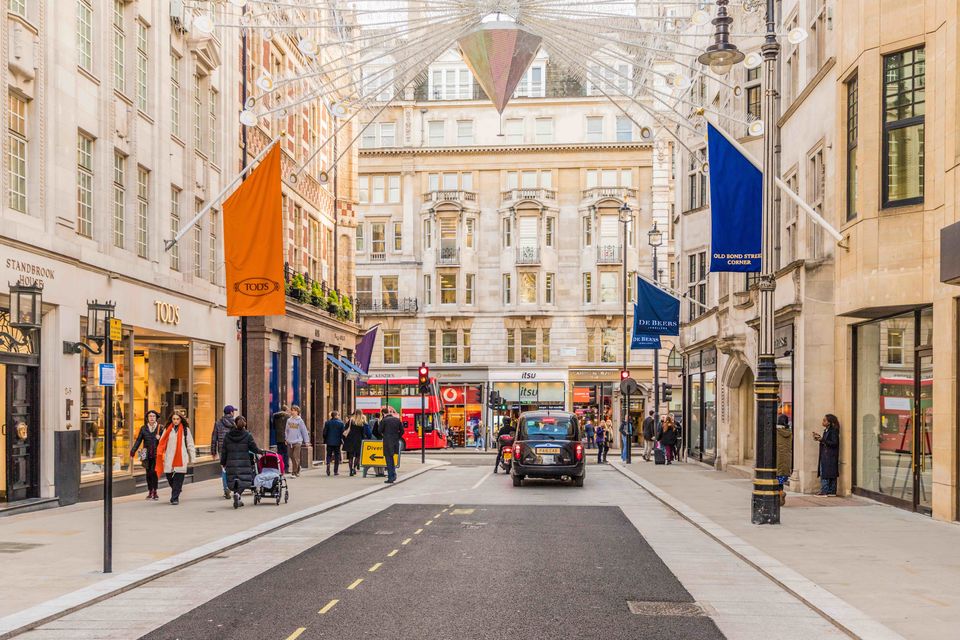
Art dealers have joined the luxury goods and watch industries in condemning the UK government’s “hammer blow” plans to scrap tax-free shopping for tourists from 1 January.
Mark Dodgson, the secretary general of the British Antique Dealers’ Association, warns that dealers who specialise in portable objects such as jewellery, silver and small pictures will be particularly badly hit by the introduction of the new rules at the end of the Brexit period, which will prevent visitors from outside the EU being able to claim VAT refunds on items bought in the UK and taken home. “Smaller businesses will definitely suffer as a result,” Dodgson adds.
British firms had hoped to see the scheme extended to EU visitors next year to attract high spenders to the UK, but instead the Treasury announced the withdrawal of the existing scheme for all visitors.
The chancellor Rishi Sunak claims Britain would get back £528m in taxes, but if tourists stay away the UK economy stands to lose £6bn a year, £4.5bn of which is from sales from the luxury sector, according to the business analysts Global Blue. Job losses in London alone could climb to 60,000.
Rohit Gupta, the finance director at high end jewellers Moussaieff, which exhibits annually at London’s Masterpiece art fair, describes the move as “very damaging” for Bond Street. “Why would someone come here and pay 20% and not go to France and have the ability to export it and not pay any VAT or go to Switzerland and pay 8% VAT?” he says. “The ramifications will be huge.”
Many fear Chinese, Middle Eastern and Russian buyers will choose instead to shop in Paris, Madrid, Milan and Dublin. Indeed, within days of Sunak announcing the plans in September, France’s president Emmanuel Macron declared visitors should come to France instead, and slashed the value of goods on which VAT can be reclaimed from €175 to €150.
However, the London dealer Omer Tiroche, whose Conduit Street gallery is currently showing Hermès handbags alongside paintings by Andy Warhol, Piero Manzoni and Zao Wou-Ki, among others, believes Middle Eastern and Chinese buyers are unlikely to be deterred.
He says: “Although the law is full VAT relief, in actual fact the VAT refund is done by private companies who take a big chunk, so the client is only really refunded 12% or 13% at the airport. That amount is unlikely to have an impact on those buyers of luxury goods, especially since they’re coming here to see different offerings than what they have in their own countries.”
The UK Treasury points out that around 92% of visitors to the UK don’t use the VAT retail export scheme and that tax-free shopping “is still available in store when goods are posted to overseas addresses”.
But, aside from the additional cost of shipping items, buyers of art and luxury goods often prefer their purchases to be concealed behind closed doors. As Gupta says: “In a country like Saudi Arabia, the Royals play everything very close to the chest, they don’t want their business advertised. If we ship objects to Saudi Arabia from here, and it goes through customs, everyone will know their business.”
Though some warn the UK could see a drop off in tourism during the peak summer months, Lucie Kitchener, the managing director of Masterpiece, does not think the change in legislation will directly impact the June fair, “because our visitors come to London for a range of cultural and other reasons, not just for shopping”. Furthermore, she says, “the majority” of works exhibited and sold at Masterpiece are paintings and furniture and “tend to always be shipped so generally don’t fall under the VAT retail export scheme”.
While London’s appeal as a cultural centre remains “really strong”, Kitchener concedes it is “possible this legislation will have a broader impact on business in the UK, particularly the luxury sector”. She adds: “It also shows the impact a seemingly small change in legislation can have and I hope, looking forward, we can consider legislation that supports rather than hinders UK businesses.”